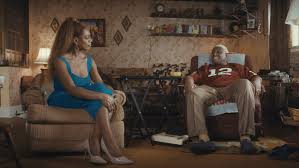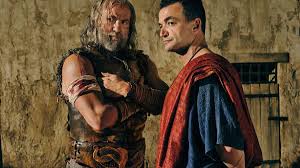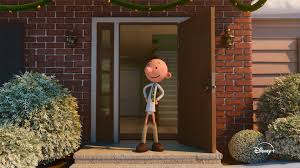Clean Slate Review 2025 Tv Show Series Cast Crew Online
Laverne Cox is an amazing performer. Though this should go without saying considering the great work she delivered over her seven years as Sophia Burset in Netflix’s critically acclaimed series Orange Is the New Black, as a Black trans woman, Cox has not gotten the recognition she deserves ever since that show ended, instead being relegated to small roles in projects such as Promising Young Woman and Uglies. It was a relief when the news broke that Cox would be starring in her own Prime Video series, Clean Slate, appearing in the credits not just as the lead but also as a co-creator alongside Dan Ewen and George Wallace. However, now that all eight episodes are poised to drop, are Cox’s talent and charm enough to carry an entire series?
The answer is both yes and no, as Clean Slate largely benefits from Cox’s charisma. The actress also has incredible chemistry with her co-stars, particularly with the father-daughter duo played by Jay Wilkison and Norah Murphy. The sexual tension between Cox’s Desiree Slate and Wilkison’s Mack is palpable, and the big sister dynamic Desiree has going on with Murphy’s Opal is also great. Similar compliments can be extended to the rest of the cast, all of whom have their own talents elevated by Cox’s presence on-screen. However, there are other aspects where the show falters more visibly, including its pacing and writing. Those shortcomings aren’t enough to doom Clean Slate to oblivion, but they sure should be taken into consideration — or possibly even fixed ahead of a potential second season.
Before discussing where, exactly, Clean Slate stumbles, it is important to understand what the show succeeds in. Cox, Ewen, and Wallace are not in the business of complex humor or edgy jokes; Clean Slate is a wholesome sitcom through and through, one that would feel right at home among the TGIF shows of the ’90s. The story of a trans woman who decides to return to her father’s home in Alabama after spending 23 years in New York without speaking to him is one rooted in a community built around love and acceptance. Though at least one bad agent tries to make Desiree feel out of place in her hometown of Mobile, her story is one of finding family exactly in the place she least expected it: in the arms of the one she walked out on. Desiree’s father, Harry (played by Wallace), is nothing if not loving, and the same can be said for the rest of the locals, from Desiree’s best friend Louis (D. K. Uzoukwu) to the aforementioned Opal and Mack, workers at Harry’s car wash who soon evolve into part of the family.
With all that in mind, Clean Slate is a show that, in our current landscape of constant attacks against transgender people, feels both unfortunately outdated and perfectly timed. Apart from a bigoted pastor who cannot accept Desiree for who she is, there is not a single soul denying her right to be seen as a woman. On the other hand, perhaps something like Clean Slate is necessary right now in order to provide some comfort to the men, women, and non-binary folks whose very existences are under threat. Considering that the show was in production before the 2024 election, it is prescient in how it offers its audience the gentle reminder that there are still people out there who love them for who they are.
In all of that, Clean Slate undoubtedly succeeds. Sure, there are some vices in these so-called wholesome sitcoms, such as often too-soft jokes being met with kind eye-rolls or an “oh, you”-like expression, which some might find annoying. But if you go into the show with the correct mindset, you’re sure to find yourself embraced by the love that surrounds Desiree. And if you fail in doing so, all it takes is a few episodes to get into the mood. By the final chapters of the story, you will most certainly be moved by the series’ more heartwarming moments.
All that adorableness isn’t enough to erase the series’ bigger issues, including the lack of conflict that permeates the vast majority of Clean Slate’s episodes. For the most part, we are told that things should be happening instead of those events being depicted. In “Desiree. And Whatnot,” the series’ big opener, Desiree divulges that she had to move away from her father because he was toxic, never fought for her, and was not accepting of her identity. All of that would be fine and dandy if we actually saw Harry being any of those things. Instead, Wallace’s character is a father merely surprised by the arrival of a daughter he didn’t know he had, someone who is a bit emotionally unavailable but still makes an effort to respect her for who she is. When Desiree threatens to go back to New York later on, it seems like she’s overreacting rather than appropriately responding to a father who doesn’t wish to know her.
This problem is not exclusive to the premiere; Episode 3, “Opal’s Day Off,” reveals that its titular character is a very stressed child, but apart from her being nervous about her dad’s appearance on Career Day, we don’t get the impression that she’s burned out or anything of the sort. Perhaps the episode should’ve come later in the season, after we’ve learned more about Opal — such as the fact that she watches Bloomberg on Saturday mornings. This tell-not-show attitude results in Clean Slate feeling largely low-stakes, with the best episodes in the series being the ones in which a powerful external force, from Mardi Gras to voter suppression, brings trouble to an otherwise pretty stable community. When conflict does appear in Clean Slate’s Mobile, it is quickly resolved. In a 25-minute episode, Opal will get over her brief run with the mean girls or Harry will get back his mug from his neighbor/nemesis Miguel (Phillip Garcia) in less than ten minutes. What should be an episode-long conflict is resolved in the time it should take for the plot to really start moving.
Part of the series’ problem, at least, derives from the duration of current streaming shows. Clean Slate is a show that would have benefited from a longer episode order. Then, the writers would be able to devote entire episodes to plots that are relegated to the background in a much shorter run in order to zip the whole story into a more compact season. Even what should be the common theme tying the whole series together — Desiree’s gradual mental breakdown after leaving her life in New York behind — feels drowned out by smaller plots that also need more space to breathe. With just eight episodes, Clean Slate doesn’t properly address anything, and scenes that should have felt like emotional revelations in the end seem to come out of nowhere.
This pacing issue doesn’t necessarily mean that Clean Slate doesn’t deserve a watch. Many sitcoms, even certifiable hits like The Office and Parks and Recreation, had rough first seasons. However, they existed in a world prior to streaming, where shows were allowed to build an audience instead of getting canceled if they didn’t meet some shadowy metrics during their premiere weekend. If you need something warm and fuzzy in these trying times, giving Clean Slate a chance isn’t a bad idea, even if it is far from perfect. Maybe it can even lead to a better and improved second season compared to this messy first one — and given the cliffhanger at the end of the finale, Cox, Ewen, and Wallace clearly plan to keep the story going.




